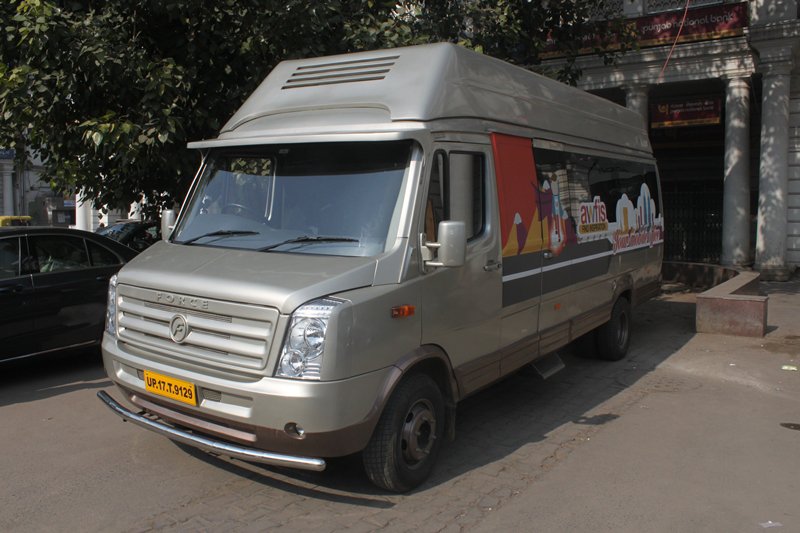Shared workspaces are rapidly becoming a norm in India; a trend that has successfully altered workspaces globally.
Shared workspaces are rapidly becoming a norm in India; a trend that has successfully altered workspaces globally. Infrastructure & networking opportunities, work-place flexibility and convenience, ever-increasing commercial real estate prices and increased acceptance of unconventional office settings are some of the many factors that are driving this demand.
With the fast adaptation of ‘shared workplace’ culture, even large enterprises are gravitating towards such spaces to consolidate their business. As per industry predictions, 2018 will see the shared workspace sector receiving investments worth USD 400 million. A report published by CBRE group highlights that shared workspace segment in India is expected to touch 10 million sq. ft. by 2020. Moreover, by 2020, the shared workspace industry is anticipated to overtake traditional format offices.
Here’s a look at some of the considerable factors that would be driving the demand and absorption of shared workspaces in India:
1. A win for real estate players
Contrary to conventional office buildings, shared workspaces are relatively utilised by a large number of tenants without any security deposit or lock in period and for a flexible time period. Shared workplace operators can expand in emerging and peripheral locations through a revenue sharing model that fits well for developers with high vacancy in non-performing buildings or micro markets. Turning the underutilized real estate space into an opportunity, these spaces yield higher earnings as a result of the income generated from the large occupants like big corporates etc. The decision to collaborate with such workspace providers heavily depends on the location, attractiveness, functionality and quality of amenities that the workspace is providing.
2. Flexible Workspace and aesthetically appealing activity based settings
Flexible workspaces provide one the agility to work anywhere within the workplace and do not require a dedicated desk of their own with multiple settings adapting to various workstyles. Flexible desks are community focused enabling greater interaction among fellow members yield greater productivity through agile working. Large corporates prefer flexible desks for their extended sales and branch locations with 15-20 member teams which provides a lower capital and operating investment, higher collaboration among teams and better access to potential customers. From flexible workstations, new age cabins, activity based setting including comfortable couches and beanbags, shared workspaces are building an endearing experience for community members with added amenities, collaborative culture and curated events. Shared workspaces today have replaced the dreary aesthetics of conventional offices to become a hotbed of creativity and productivity characterised by compelling design elements.
3. Co-work to network
Networking is an inherent part of shared working. More than providing just a space, one can meet like-minded people with whom they can co-create and develop their company’s next big idea. With developments in technology, mobile working and flexible operations, shared workspaces are an ideal solution for executing productive meetings. Companies are designing theme spaces and break out zones where teams can collaborate for innovative ideas to originate. Activity based settings provide a combination of areas for employees to take a break from work as well as exchange ideas with other co-workers. A well designed workplace plays a key part in inspiring its users to engage, collaborate and ultimately be productive. The complexity of urban centres like Bengaluru, Delhi-NCR and Mumbai with its traffic challenges and large disconnected central business district and residential zones provides a unique opportunity for shared workspaces to be used as an attraction and retention tool to get talent from a diverse base of demographics catchment areas. The 2020 real estate strategy for any scale business will draw lessons from shared workspaces to create spaces that are motivating, accessible, and deliver a customised solution that inspires the workforce to come to work.
4. Value for money
In India’s top metropolitan cities such as New Delhi, Mumbai, Bangalore, shared workspaces can lead to approximately 20-25% cost savings as opposed to conventional office spaces. To cater to emerging businesses, start-ups and freelance professionals, shared workplace operators primarily try to address the on-demand needs of occupiers. Community members benefit from high quality technology infrastructure, strategic location, prime office solutions and amenities by choosing to work out of a shared space. The challenges are varied across various metro cities in India. In Mumbai the deposits are higher than other cities leading to higher upfront cost of leasing. Commuting remains the biggest challenge in Bengaluru. In Hyderabad, the supply of an office space cannot match up to the demand and in Delhi the tenant demand of high quality office spaces is growing stronger by the day. The ability of shared workspaces to achieve higher density, shared amenities & services with flexibility on tenure and number of seats eases the challenge of cost of ownership with extremely low entry point of flexi desk costing as low as Rs. 400-500 per day; adding up as a huge cost savings for occupiers.
5. New Kids on the blocks – Millennials
India is the youngest start-up nation in the world where 72% of founders are less than 35 years of age. Millennials matter because they account for over half of the population in India and by 2020, they will form 50% of the global workforce. Shared workspaces are where they prefer to work because it maximises their productivity with right exposure, network and community engagement without any organizational boundaries. Adoption of shared workspaces will be on the rise where top talents will breed on the coolest quotient of their office space.
The journey of shared workspaces has just begun across India’s business districts, office rentals are significantly rising leading all companies to rethink their real estate strategy. The ability of new age workspace operators to rethink, innovate and disrupt the traditional models of real estate to create solutions that will make workspaces flexible, accessible and affordable will lead to a surge in size, scale and reach of shared workspaces.
(By Amit Ramani, Founder & CEO of Awfis Space Solutions)
To read the online article click here: https://www.financialexpress.com/money/shared-workspaces-5-factors-driving-growth-of-flexible-workspaces-in-india/1139912/









